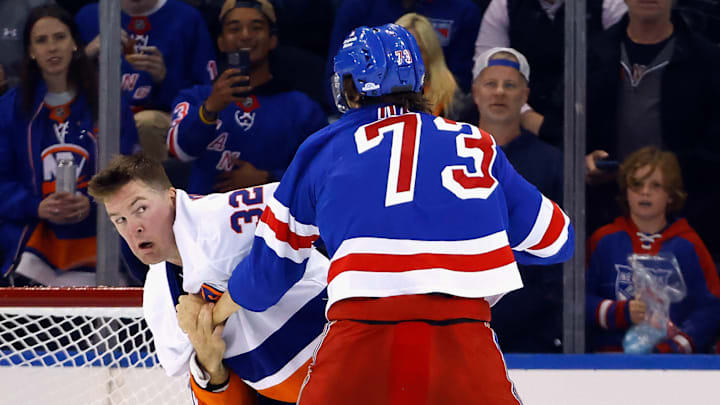The last attribute to consider- beyond the physical capabilities and ability to control the pace of play- is Johnston's value in the room. It is no secret that this Islanders team succeeds by being more than the sum of its parts and has become a family of sorts. In fact, the lack of roster turnover this past offseason caused some angst among the fanbase. But the organization has decided to go all-in on this roster for at least another season or two, and it is clear from their unwillingness to waive Johnston previously that the front office believed he was a big part of that tremendous chemistry. And seeing how quickly the Ducks claimed Johnston once the Isles did waive him, it is evident that the Islanders are not alone in this assessment.
But chemistry comes from winning, and winning comes from icing the best roster possible. Additionally, players with intangible value like that are relatively easy to acquire at low cost; reserving a roster spot for a leader in the room is a luxury that most teams cannot afford. And the Ducks, as a young rebuilding team, are a better fit for a player like Johnston, who can imprint his strong work ethic and confidence onto these younger players. And if you are of the old-school belief that fighting does deter violence against your young stars, there's no better place for Johnston to be than in Anaheim, looking after young stars like Leo Carlsson, Trevor Zegras, and Mason McTavish.

When Johnston was claimed by the Ducks, Isles GM Lou Lamoriello must have felt some level of vindication. After all, Lamoriello had avoided waiving Johnston for years, tacitly displaying an implicit understanding of his value around the league. Losing Johnston, a player groomed in this organization the last few years who had been a part of some special seasons, could not have been easy for the front office.
But the loss should not be (and thus far has not been) devastating for the Islanders. Losing Johnston allowed the team to keep Simon Holmstrom, Oliver Wahlstrom, Julien Gauthier, and Hudson Fasching on the roster - all of whom have more to offer this team than Johnston. Furthermore, if the lack of an enforcer beyond Martin becomes an issue at any point, players like Johnston are relatively easy to acquire, so the Islanders would be able to mitigate the problem.
Losing Johnston had to hurt the Islanders in the locker room. But successful teams and organizations have to deal with roster moves such as this, and the Islanders are no different. Fortunately, the benefits provided by Johnston are relatively easy to acquire elsewhere if needed, so the loss of Johnston should not be, and thus far has not been, problematic for the Islanders.
